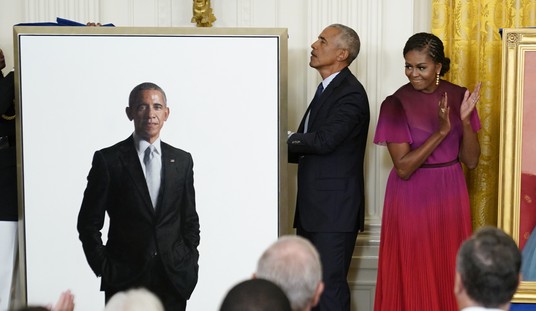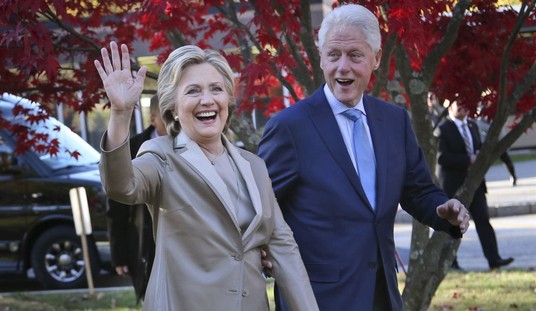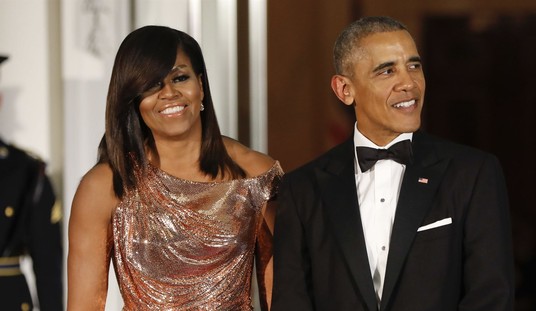The reasons for Sharron Angle’s loss to Harry Reid in a GOP surge year, when other conservative candidates like Rand Paul of Kentucky and Joe Walsh of Illinois won victories, are not rooted in strategy. Nor are they rooted in a flawed ideology that was too conservative. Instead, the loss was a product of simple logistical failures by the Angle campaign, failures they often were unwilling or unable to understand.
“Amateurs talk about strategy. Professionals talk about logistics,” said General of the Army Omar Bradley. Sure, he wasn’t talking about political campaigns. Yet the famous military axiom, more often than not, holds for politics as well. The terrible swift sword of the South, General Nathan Bedford Forrest, described it as “getting there first-est with the most-est.”
So here is a look at the “first-est” logistical reasons Angle lost to Harry Reid:
1) Lack of experience at the top. Three weeks after Angle won the Republican primary, top Angle advisors were still “looking for chinks in Harry’s armor,” as they put it. Really, they had absolutely no idea how they were going to take on Reid. None. Zip. Seasoned professionals would have been ready to execute. You know that IT guy who lives across the street; the guy I wave to in the morning? Yes, that guy would have had a better idea how to take on Reid than Angle did. Some ideas would have been better than no ideas at all. “We just won the primary three weeks ago,” a top member of Angle’s staff complained when asked why the campaign had stalled out. In that time, Angle went from a double-digit lead to down seven percentage points. She squandered her “first-est” advantage.
2) No message discipline. There are three things that can happen when a politician opens her mouth and only one of them is good. She can be quoted accurately but off-message; she can be quoted inaccurately and off-message; or she can be quoted accurately and on message. The outcome is always the responsibility of the candidate. Too often Angle was quoted off-message. Angle was infamous for verbal gaffes on the trail. These were due to her getting off the message that the economy sucks and it’s Harry Reid’s fault. Every social-issue question should have been answered saying: “Interesting question. I think the thing Nevadans want to know about is why after Harry Reid spent trillions of tax dollars, Nevada still leads the nation in unemployment, foreclosures, and bankruptcies.” It might have been a boring campaign, but Angle would have won by hammering her “best-est” argument.
3) Lack of experience in the middle. The campaign was littered with friends of friends who were very enthusiastic but lacked basic campaign experience. They shunned experienced activists (and advice), creating an “us against them” attitude in the GOP community. Even groups who were active in helping Angle win the primary were given the stiff arm once the general election started. Coalitions happen in the middle space of a campaign, and the Angle campaign squandered that space. Much of the Angle GOTV operation was by spontaneous activists who were frustrated by the lack of response from the Angle campaign. Although enthusiasm was at a high point in Vegas, Angle didn’t exploit the “most-est” enthusiasm gap.
4) Fear and Loathing in Las Vegas. The campaign had a poor working relationship with the press, fostered by the fear that Angle too often got off-message. The press, Angle likely felt, “had no business to report [her remarks] so verbatimly,” to use Mark Twain’s apt phrase. Angle, then, rebuffed the press, which is always a mistake. Yes, it feels good to rebuff us. But the rebuff created a loathing by the press, which was returned by the campaign. Angle would have been wise to see the press as a delivery mechanism that is better managed than challenged. While this failure doesn’t necessarily fit into any “first-est with the most-est,” category, it might have been the dumbest thing the campaign did. It made the campaign look like it lacked confidence in itself.
“Victory in the next war will depend in execution not plans,” Patton wrote to Eisenhower in 1926. The next war was World War II. That war was won by overwhelming the Axis powers by logistics, not strategy.
It’s a lesson all candidates should study when they prepare to take on the Axis of Evil.









Join the conversation as a VIP Member